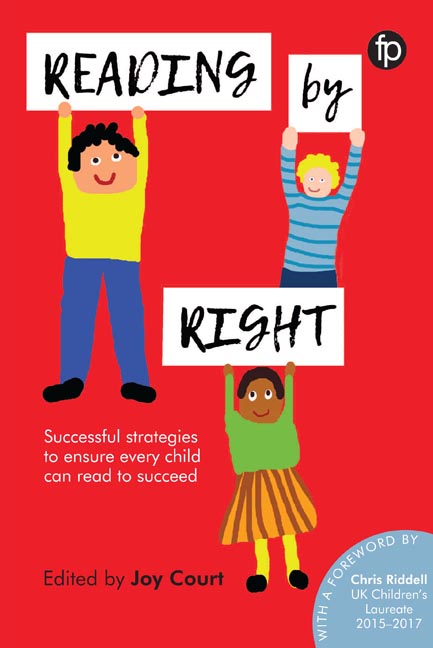Book contents
- Frontmatter
- Dedication
- Contents
- List of figures, boxes, case studies and appendices
- Foreword
- Contributors
- Introduction
- 1 Supporting every child to read
- 2 Listening to their voices: what research tells us about readers
- 3 Becoming a reluctant reader
- 4 Reading Club: a case study from Finland
- 5 Trained reading helpers: Beanstalk's magic ingredient
- 6 Let all children experience the joy of reading: promoting children's reading in Korea
- 7 Reflecting readers: ensuring that no one is excluded
- 8 Pulling in reluctant readers: strategies for school librarians
- 9 Not just for the avid reader: inclusive Carnegie and Kate Greenaway shadowing
- 10 Listen up! How audiobooks support literacy
- 11 Reading the future
- Index
10 - Listen up! How audiobooks support literacy
Published online by Cambridge University Press: 08 June 2018
- Frontmatter
- Dedication
- Contents
- List of figures, boxes, case studies and appendices
- Foreword
- Contributors
- Introduction
- 1 Supporting every child to read
- 2 Listening to their voices: what research tells us about readers
- 3 Becoming a reluctant reader
- 4 Reading Club: a case study from Finland
- 5 Trained reading helpers: Beanstalk's magic ingredient
- 6 Let all children experience the joy of reading: promoting children's reading in Korea
- 7 Reflecting readers: ensuring that no one is excluded
- 8 Pulling in reluctant readers: strategies for school librarians
- 9 Not just for the avid reader: inclusive Carnegie and Kate Greenaway shadowing
- 10 Listen up! How audiobooks support literacy
- 11 Reading the future
- Index
Summary
Introduction
For many readers, experiencing a well-told story is satisfying on many levels. Librarians and educators who work with children and teens dedicate a great deal of time to attempting to make the right match between reader and book, and while the right pairing can be a richly rewarding experience, for some, traditional reading of print can be both difficult and unsatisfying. For young people who have access to them, audiobooks can be an appealing, alternative format to printed books. Audiobooks provide a favourable option while promoting literacy by focusing on the art of listening as a means to engage with and experience stories and the world at large. As Cardillo et al. (2007) offer: ‘Learning is most effective when it is a multisensory experience’ (43).
An important question worth considering is: what part do librarians’ play in offering tools and materials that develop and promote literacy? Within the context of the larger literacy landscape, the role played by librarians is essential; as former US Commissioner of Education Harold Howe states, ‘What a school thinks about its library is a measure of what it thinks about education’ (Howe, 1967).
With this in mind, how do librarians promote the development of listening in the context of supporting literacy for the population they serve? In particular, when it comes to providing access to audiobooks for young people, librarians are the gatekeepers of those library collections which may be the sole access point for patrons who cannot buy audiobooks for themselves. The role of librarians in library collection development is profound; their knowledge of the value and importance of multiple media guides their choices, decisions and programming, so having a clear understanding of the value of audiobooks as tools of literacy is essential in order for them to be able to provide robust and relevant audiobook collections for young people.
A brief history of audiobooks
Although most audiobooks were initially introduced as accessibility tools for the visually impaired, their history dates back to the Victorian era (Camlot, 2003). Discussions of the earliest ‘talking books’ appeared in 1878, when Thomas Edison in The Phonograph and its Future (1878) remarked, ‘The advantages of [talking] books over those printed are too readily seen to need mention.
- Type
- Chapter
- Information
- Reading by RightSuccessful strategies to ensure every child can read to succeed, pp. 169 - 188Publisher: FacetPrint publication year: 2017



